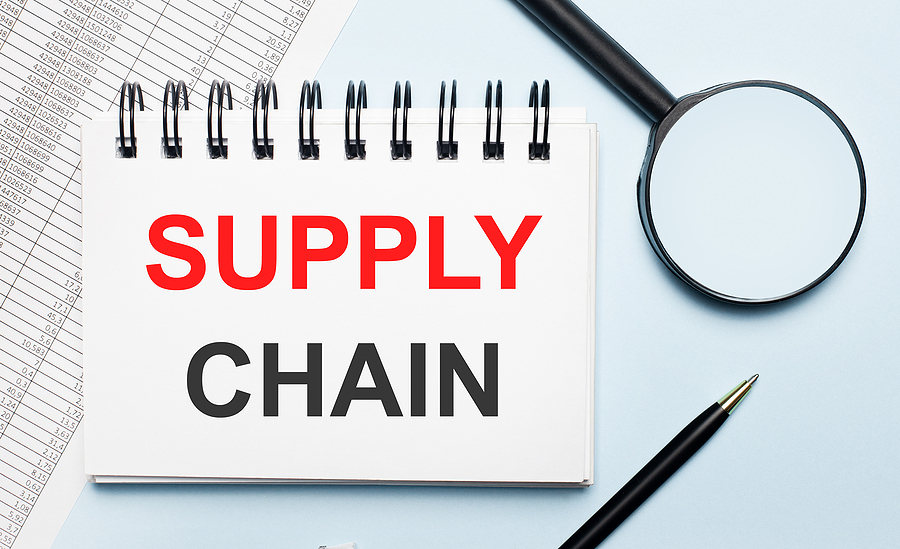
The term “supply chain” is heard frequently, whether related to food, clothing, pharmaceuticals, cars, or even illegal narcotics. What is it, and why is it so important—and sometimes difficult—to secure?
What Is a Supply Chain?
Basically, the supply chain is the group of entities (people, companies, equipment, etc.) that are involved in creating a product and delivering it to the end user. Simple, right? What can go wrong? Unfortunately, many issues can arise.
Not all disruptions are caused by criminal activity. Recently, we’ve seen disruptions in beef supply, gasoline, COVID-19 vaccines, and much more. A natural disaster or shortage of a raw material or basic component can cause a supply chain to break down.
But sometimes very sophisticated criminals and schemes create supply chain issues. Fortunately, many of these activities can be prevented.
Supply Chain Threats
Most supply chains face four main criminal threats, both internal and external.
Thefts
We’ve investigated everything from the hijacking of trucks to unauthorized removal of medical equipment from healthcare facilities.
Diversion
We’ve seen quite a few fast-growing companies that lack proper protocol and procedures fall victim to diversion—where merchandise intended for a specific distribution channel is shifted elsewhere for sale. By the time the organizations realize what’s happening, the goods and people involved are long gone.
Counterfeiting
Counterfeiting has been a problem for as long as goods have existed. The pandemic has only worsened this problem. There has been a spike in many types of counterfeit luxury goods, especially those in short supply due to production issues. Counterfeiters have rushed to fill that demand.
Cyber Attacks/Data Breaches
While this huge topic deserves an article of its own, recent news reports have highlighted some very well-known examples that have affected such basics as beef supply and gasoline.
These issues can create a wide array of concerns beyond the obvious financial loss, including unsafe work environments, illnesses from taking counterfeit/expired products, and damage to the reputation/brand.
Preventive Measures
Like most other security vulnerabilities, the old adage “an ounce of prevention is worth a pound of cure” applies here. Simple steps can often eliminate security issues before they occur. Here are some basic tips:
- Establish a team to handle day-to-day activities and respond to any incidents. The team may include different disciplines from your organization, as well as external partners.
- Implement proper procedures and protocols for handling shipments and other components of the supply chain, including oversight and sign-offs.
- Implement an initial and ongoing training program. Conduct regular and random audits to ensure compliance with company requirements.
- Implement an intelligence monitoring program. Information is key to protecting your organization.
- Implement an appropriate due diligence program to properly vet all of those involved in the supply chain.
- Conduct regular risk assessments (internal and third-party partners/suppliers) to determine where you are most vulnerable. This should include an understanding of what would motivate an attack on the supply chain, what these bad actors would be after, and who within the supply chain has relevant information that can cause issues if compromised.
Don’t forget that the process of protecting your supply chain is dynamic. You will need to be flexible and make adjustments on a regular basis to account for changing threats.
Prepare a Response Plan
As we all know, bad things can still happen, despite our best efforts. When they do, you need to respond quickly. Do you have the resources to conduct an internal investigation? If not, do you have partners that can assist? An investigation may require the following:
- Review of documentation
- Review of CCTV footage
- Background checks
- Interviews of relevant personnel
- Intelligence collection (similar incidents, known players, local sources)
- Contact with law enforcement
At the end of an investigation, if possible, you want to do the following:
- Create a timeline of events
- Document and retain evidence
- Identify vulnerabilities and make appropriate changes
- Work with law enforcement on a civil/criminal case, if possible/appropriate
- Share information with industry partners, if possible/appropriate
Criminals/Bad actors are working every day to attack your supply chain. The motivation can change, but the threat is ever-present. You must be proactive to prevent issues. Equally as important is the ability to respond quickly when something occurs. All of this requires planning.
Please contact us at info@integrasintel.com for assistance in protecting your supply chain.












